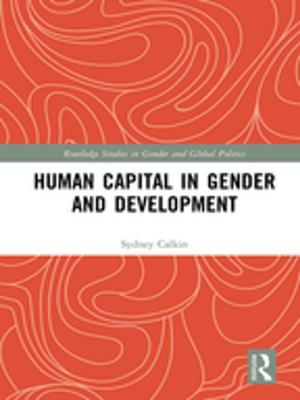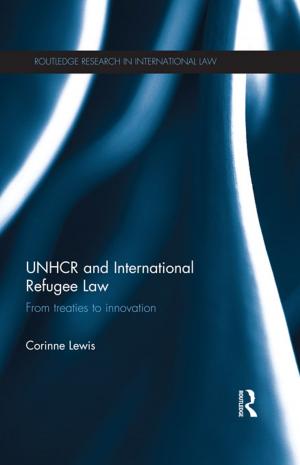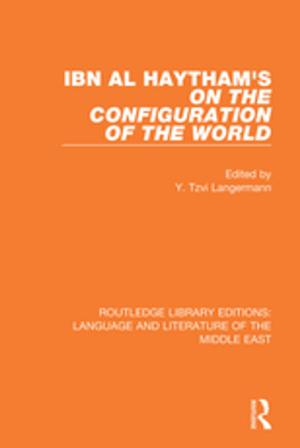Philosophy, Society and the Cunning of History in Eastern Europe
Nonfiction, Religion & Spirituality, Philosophy| Author: | ISBN: | 9781135761233 | |
| Publisher: | Taylor and Francis | Publication: | September 13, 2013 |
| Imprint: | Routledge | Language: | English |
| Author: | |
| ISBN: | 9781135761233 |
| Publisher: | Taylor and Francis |
| Publication: | September 13, 2013 |
| Imprint: | Routledge |
| Language: | English |
Philosophy, Society and the Cunning of History in Eastern Europe charts the intellectual landscape of twentieth century East-Central Europe under the unifying theme of 'precariousness' as a mode of historical existence. Caught between empires, often marked by catastrophic historic events and grand political failures, the countries of East-Central Europe have for a long time developed a certain intellectual self-representation, a culture that not only helps them make some sense of such misfortunes, but also protects them somehow from a collapse into nihilism. An interdisciplinary study of this sophisticated culture of survival and endurance has been long overdue. Not only is it charming and worth studying in its own right, but with the re-integration of the 'new Europe' into the 'old' one and the emergence on the 'Western' European intellectual scene of many authors from the 'East,' such a culture will also shape the European mind of the 21st century.
This volume decodes and explores this culture of 'precariousness' from the complementary angles of philosophy, political theory, intellectual history and literary studies. Expert contributors look at a wide range of topics, from philosophical martyrdom to collective suffering to geographical fatalism, and explore the works of key authors in the field including Cioran, Kołakowski, Kertész, Bauman and Žižek.
This book was originally published as a special issue of Angelaki: The Journal of the Theoretical Humanities.
Philosophy, Society and the Cunning of History in Eastern Europe charts the intellectual landscape of twentieth century East-Central Europe under the unifying theme of 'precariousness' as a mode of historical existence. Caught between empires, often marked by catastrophic historic events and grand political failures, the countries of East-Central Europe have for a long time developed a certain intellectual self-representation, a culture that not only helps them make some sense of such misfortunes, but also protects them somehow from a collapse into nihilism. An interdisciplinary study of this sophisticated culture of survival and endurance has been long overdue. Not only is it charming and worth studying in its own right, but with the re-integration of the 'new Europe' into the 'old' one and the emergence on the 'Western' European intellectual scene of many authors from the 'East,' such a culture will also shape the European mind of the 21st century.
This volume decodes and explores this culture of 'precariousness' from the complementary angles of philosophy, political theory, intellectual history and literary studies. Expert contributors look at a wide range of topics, from philosophical martyrdom to collective suffering to geographical fatalism, and explore the works of key authors in the field including Cioran, Kołakowski, Kertész, Bauman and Žižek.
This book was originally published as a special issue of Angelaki: The Journal of the Theoretical Humanities.















